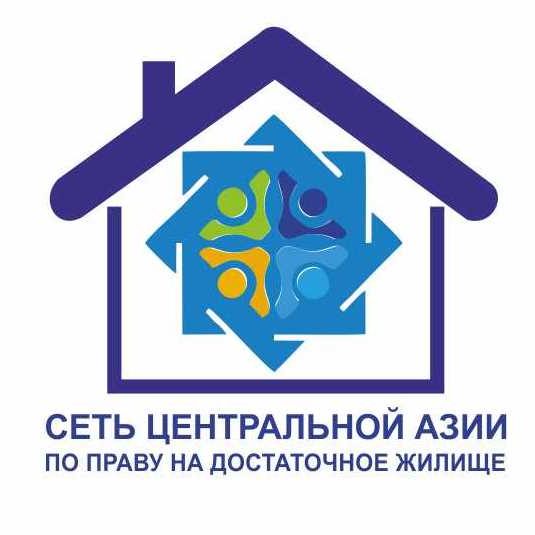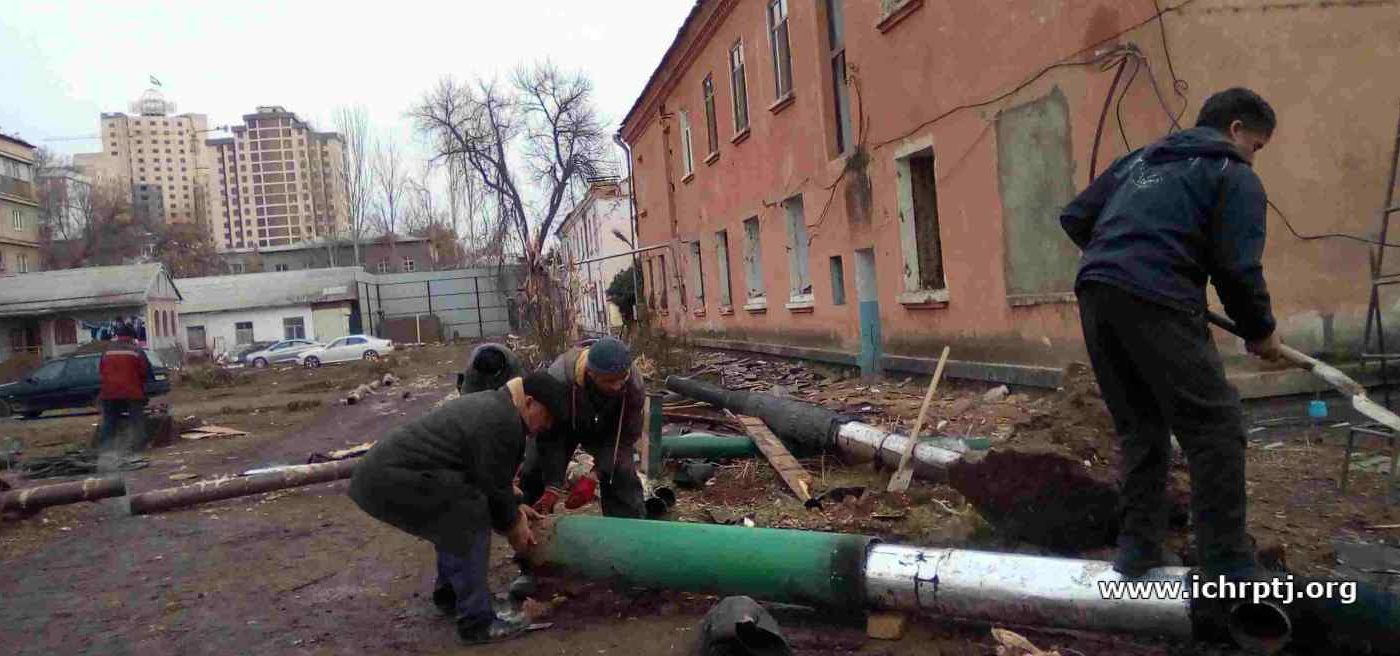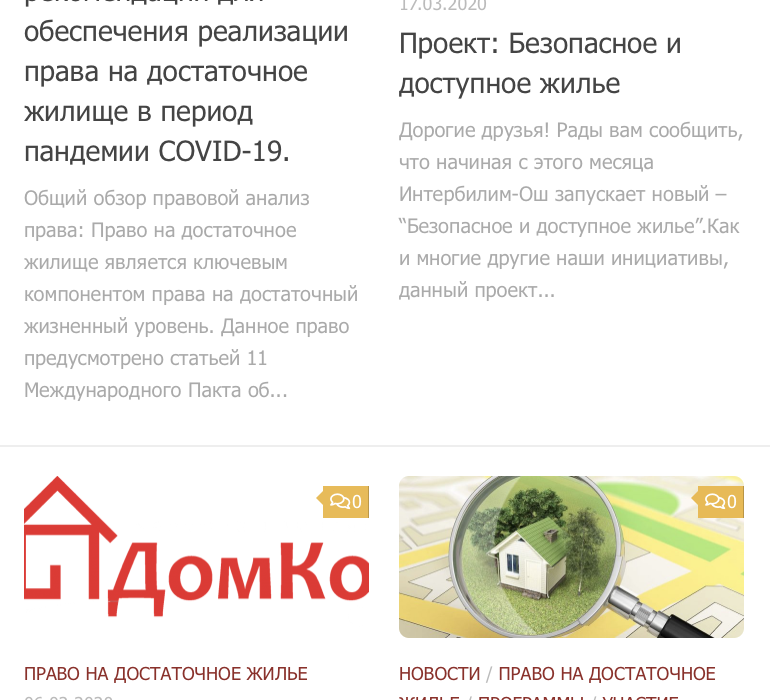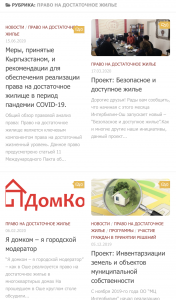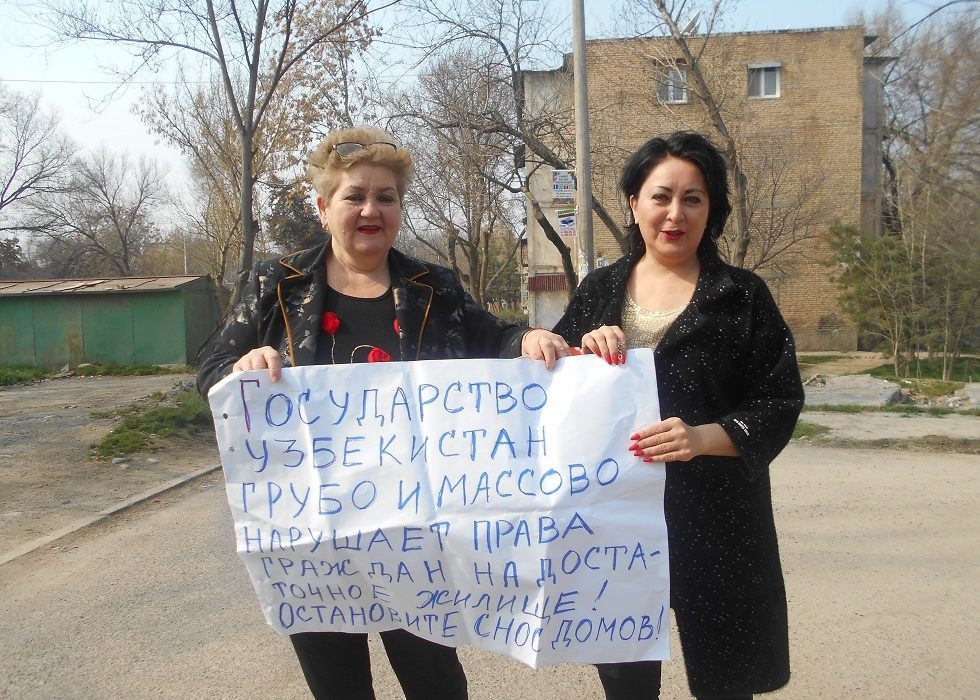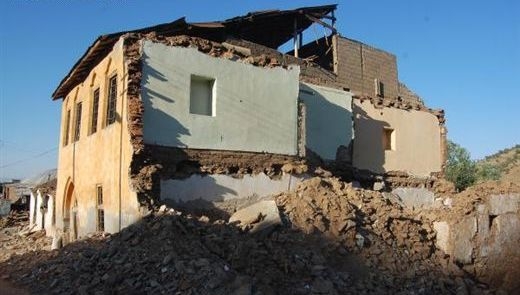Год: 2020
Kyrgyzstan: REPORT UNDER UNIVERSAL PERIODIC REVIEW
This report is jointly developed by Osh Affiliate of International Centre Interbilim Public Organization and Our Right Public Foundation to be submitted for consideration in the Universal Periodic Review process of the UN Human Rights Council aimed at assessing the progress made by the Kyrgyz Republic in implementing human rights-related recommendations.
Osh Affiliate of International Centre Interbilim Public Organization is independent non-governmental organization established in 2010 in Osh. It is an affiliate of International Centre Interbilim (Bishkek, 1993). The mission of the organization is to ensure development of civil society actors, lobbying citizens’ interests in the government institutions on social and economic rights.
335-11 Lenin Street, Osh, Kyrgyz Republic, 723500
Tel. +996 555077764
www.interbilimosh.kg, e-mail: interbilim.osh@gmail.com
Contact person: Ms. Gulgaky Mamasalieva, Manager, Osh Affiliate of International Centre Interbilim, e-mail: gulgaky777@gmail.com
Our Right Public Foundation is an independent non-governmental organization established in 2008. The mission of the organization is to assist in ensuring openness and accountability of local self-government; provide assistance in the field of protection of the right to adequate housing.
199 Jumabek Street, Bishkek
Contact person: Ms. Kalicha Umuralieva, legal expert Our Right Public Foundation
Telephone: (+996) 0-707-7777-49
Email: kalicha56@gmail.com
Summary
This report is provided in accordance with the procedures for document inclusion in the 3rd Universal Periodic Review of Kyrgyzstan. The document reflects challenges and problems regarding the right to adequate housing stipulated by the UN Charter and Treaty Bodies (UPR, ICESCR, CERD), as well as the status of implementation of the right to adequate housing by the State (UN recommendations implementation by the Kyrgyz Government, national housing programmes). Each section of the report analyses the current situation and recommendations (July, 2019).
The sections of the Report are titled as follows:
- The housing policy development in Kyrgyzstan.
- Housing eviction for State or community needs.
III. Realization of disadvantaged citizens’ rights to housing.
***The 2010 Constitution of the Kyrgyz Republic enshrines fundamental rights and freedoms to housing. Thus, Article 12 of the Constitution of the Kyrgyz Republic states that “property is inviolable. No one shall be arbitrarily deprived of their property.” The Constitution recognizes and protects the right to housing. The Constitution imposes obligations on public authorities – both at the central and local levels – to create the conditions for the realization of the right to housing, including provision of housing free of charge or at an affordable cost to economically disadvantaged people and other persons in need. The Constitution also recognizes the right to inviolability of the home and provides that the search, seizure, inspection or other action, or entry of agents of the public authorities into a home or other buildings owned or otherwise possessed is allowed only on the basis of a judicial instrument.
However, the legislation of the Kyrgyz Republic does not guarantee full protection of citizens’ rights and freedoms in the sphere of adequate housing; the lack of relevant mechanisms for implementation of this right creates settings for violation of the citizens’ right to housing by the authorities.
In some cases, it is possible to say that the authorities ignore international and national norms in the field of citizens’ right to adequate housing.
The UN human rights mechanisms issued six recommendations regarding the right to adequate housing aiming at improving Kyrgyzstan’s compliance with international human rights standards.[1] However, not all of them have been implemented by the Kyrgyz Republic.
- The housing policy development in Kyrgyzstan.
A recommendation of the second Universal Periodic Review for Kyrgyzstan (Chile, UPS 2015), p. 5, par. 5.124, is to the effect that the state has “to take measures to draft a national strategy to ensure the full realization of the right to adequate housing.” In 2015, the Committee on Economic, Social and Cultural Rights review the Combined Second and Third Periodic Reviews of Kyrgyzstan on the implementation of the International Covenant on Economic, Social and Cultural Rights and passed Concluding Observations on the Combined Second and Third Periodic Reviews of Kyrgyzstan[2], and pursuant to par. 19 “Homelessness and right to adequate housing” of this document, the Committee further recommended that Kyrgyzstan ensure the implementation of a national strategy to reduce the number of homeless persons and indicate measurable goals and timeframes. However, unfortunately, we have to state that the government failed to implement this recommendation. To this day, the country lacks a housing strategy based on UN International Guidelines[3] that would include social housing and homesslessness reduction.
In 2000, the housing policy was approved by the Decree of the President of the Kyrgyz Republic No. 76 dated April 6, 2000 on the Concept for Housing Construction Development until 2010. In 2007, the Government Decree No. 562 of 26 November 2007 approved the National Housing Construction Programme for 2008-2010. However, not a single point of this policy was implemented.
[1] Annex to this report on the status of the UN recommendations implementation
[2] Approved by the Committee at its 55th session (June 1−19, 2015).
[3] Report of the Special Rapporteur on adequate housing as a component of the right to an adequate standard of living, and on the right to non-discrimination in this context: https://www.undocs.org/en/A/HRC/37/53
In 2015, the Affordable Housing Program of the Government of the Kyrgyz Republic for 2015-2020 was adopted and approved by the Kyrgyz Government Resolution No. 560 dated August 5, 2015. However, the Special Report of the Ombudsman regarding implementation of Bishkek citizens’ right to adequate housing states that “…the current 2015-2020 Affordable Housing programme does not meet the needs of the most vulnerable groups of the population, who due to low income, employment in informal sector, lack of documents, homelessness are not able to benefit from this program. The program does not provide for the development of housing that is not meant for home ownership; however, some forms of housing such as long-term rental, paid dormitories based on various forms of ownership can be considered as an approach to ensure housing for the most vulnerable citizens.[1]”
Moreover, the program is focused on mortgage loans, which in the Kyrgyz context resulted in ‘mortgage’ homeless people due to lack of long money and cheap monetary means in banks. In the state’s understanding ‘mortgage lending’ means establishment of the state mortgage company which receives interest-free money from the budget; however, the people get credits at 14% of annual rate. The Law of the Kyrgyz Republic on State Mortgage Lending adopted on May 4, 2017 does not address the problem, but, on the contrary, aggravates the conditions of citizens.
Despite the fact that the Housing Code of the Kyrgyz Republic contains as set of provisions that are based on norms of international law consistent with recommendations of the former UN Special Rapporteur on Right to Adequate Housing Miloon Kothari, a lack of a proper housing strategy consistent with UN international principles results in the following problems and conflicts in the society.
- 1.UN Special Rapporteur on Right to Adequate Housing Raquel Rolnik, having studied the issue of the acquisition of housing based on the right of absolute individual right of ownership (termless ownership) in former planned economy countries that “in the 1990’s implemented projects of large-scale privatization of state housing which resulted in radical changes in the structure of legal form of ownership of housing”[2], in her Report at the 22nd Session of Human Rights Council in 2012 suggested to states to focus not on acquisition of housing on the basis of the right of private ownership but on the development of leased/rented housing and various forms of rental relations[3].
1.2. Another type of home ownership is acquisition of housing through equity construction. The lack of proper legal framework regulating this type of commercial housing has also resulted in major conflicts and discontent of the population, as well as created corruption in the field of construction. The boundless thirst for profit among developers’ companies, overstatement of the housing costs, deprived many shareholders of housing or money. Thus, they joined the category of homeless citizens.
1.3. In Kyrgyzstan, multistory houses account for 30% of the housing stock. Privatization of apartments in such buildings created the problem related to shared property, and the house plots. Despite the proper current legislation, only single owners were able to receive house plots’ documents in compliance with the norms of the Land and Housing Codes. Many house owners have lost their property due to corruption in the construction sector; collusion between officials and construction companies has resulted in illegal seizure of these land plots to be used for construction purposes. These actions violated the right of citizens to shared property and limited their access to the green and children’s play areas. The General Prosecutor of the Kyrgyz Republic, together with Our Right Public Foundation, repeatedly repealed legal acts that restricted this right to shared property. Over the past five years, local NGOs were involved in 120 cases restoring the right to shared ownership, which accounts for 5% of the total housing stock in apartment buildings.
Recommendations:
1.1.Considering the above-mentioned, the State shall develop adequate housing policy in accordance with international standards and the State’s capabilities to ensure the following:
– Regulate rental housing;
– Regulate shared construction;
– Regulate common/shared property in apartment buildings;
– strengthening of various forms of ownership
1.1.1.Rental housing.
А.It is necessary to develop the norms stipulated in the Civil Code of the Kyrgyz Republic and adopt a separate law and by-laws regulating this issue, defining the rights and obligations of tenants and landlords.
B.The state and municipal rental housing shall be built and provided to public and municipal employees, as well as to vulnerable groups of population.
1.1.2.Equity construction.
А.It is necessary to adopt the Law of the KR on Equity Construction, which stipulates the norms for any construction company to have 70% of the construction cost in its account in order to avoid frauds.
B.It is also necessary to develop the initiative proposed by Our Right PF to Bishkek Mayor’s Office regarding the need for approval of detailed design projects in areas of renovation on a quarterly basis. This will allow to stop urban in-fills, and violation of landowners’ rights.
C.Develop a number of regulatory and legal acts regarding renovations.
D.Develop housing construction through housing construction cooperatives (HCCs).
1.2. Shared property in apartment buildings.
1.2.1. General Prosecutor Office of the Kyrgyz Republic to adopt acts for procuratorial actions in case of shared property transfers to owners of residential and non-residential premises in apartment buildings;
1.2.2 The Government of the Kyrgyz Republic and the General Prosecutor Office of the Kyrgyz Republic shall take measures to encourage LSG bodies to implement Resolutions of Jogorku Kenesh of the Kyrgyz Republic and the Government of the Kyrgyz Republic regarding shared property;
1.2.3 LSG bodies shall carry out an inventory of municipal property, and transfer the property that is a shared property by law to owners of residential and non-residential premises in apartment buildings;
1.2.4. Registration bodies together with architecture bodies shall identify disputed shared property.
- Housing Eviction for State or Community Needs;
The UN human rights mechanisms have urged Kyrgyzstan to ensure full compliance of the national legislation with international obligations regarding evictions and resettlement only in case when these measures are justified.[4] A similar recommendation was made by the UN Treaty Body, the CERD, in 2018: to take the necessary measures to ensure effective legal safeguards against arbitrary land expropriation and forced evictions, and ensure that the population is aware of and able to benefit from such safeguards; as well as include provisions on compensation and alternative housing in national legislation, and ensure that house demolitions and forced evictions are used only as a last resort;[5]
2.1. Thus, the Kyrgyz State received recommendations on eviction and expropriation of land procedures twice (2015, 2018). Unfortunately, the authorities of the Kyrgyz Republic have not taken any actions yet to improve the norms and practices to realize the right to housing in case of eviction. According to the current Land Code of the Kyrgyz Republic, the development of procedures and mechanisms for housing eviction is delegated to the Government of the Kyrgyz Republic. However, so far, these mechanisms are not included in the legislation. The lack of special norms allows the executive authorities to implement procedures for land eviction in different cases at their own discretion, without taking into account the interests of the disabled persons, single mothers and children.
In 2015, the Ministry of Justice of the Kyrgyz Republic made an effort to draft the Government Regulation on Land Revocation Procedures for State Needs. Since this draft did not comply with the provisions of the Constitution of the Kyrgyz Republic and international standards, and did not guarantee freedom and the right to housing, the draft was withdrawn by the civil society. According to Article 20 of the Constitution of the Kyrgyz Republic it is prohibited to adopt bylaws restricting human and civil rights and freedoms. The need to develop a special law may also be justified through Part 6, Article 12 of the Constitution of the Kyrgyz Republic, which provides that procedures for the owners to exercise their rights, and safeguards for their protection are determined by the law. Therefore, it is recommended that revocation issues shall be regulated by a higher-level normative legal act – the law, rather than by the Government Regulation.
In December 2018, representatives of civil society submitted the norms regulating housing eviction to the Ministry of Justice, and requested to integrate them into the draft Land Code, that was placed on the website of the Ministry of Justice for public discussion. Unfortunately, not a single proposal from the civil society regarding regulation of house demolition and eviction for state and community needs was included in the new draft Land Code of the Kyrgyz Republic. The new draft Land Code proposes to make evictions as a last resort through the court, when the court can issue decisions in terms of reasonableness and legality of eviction justification. In practice, in case of forced evictions, disputes often arise due to unfair compensations and resettlement in disadvantaged locations.
2.2 Compensations. Since 2010, there has been an increase in the number of forced household evictions, especially regarding the property of ethnic minorities. In Osh, Kyrgyzstan, 22 households of ethnic minorities were demolished and evicted (repurchase) by local authorities in 2012-13, and 28 households were evicted by Jalal-Abad municipality in 2014. In 2017, 34 ethnic minorities’ households were evicted in the Kyrgyz – Uzbek border area. In all cases, the rights of citizens to property were violated. Forced evictions affected around 450 ethnic minorities’ representatives. Through intervention of Interbilim, only 34 out of 82 households received proportional compensations. However, there are no mechanisms for fair calculation of compensations in case of housing evictions established by the State. The Committee on the Elimination of All Forms of Racial Discrimination made the following recommendations in 2018: to include a provision on compensation and alternative housing in the national legislation (24.d).[6] Unfortunately, the State has not yet taken any steps to incorporate these recommendations into its land and housing legislation. Moreover, the Government of the Kyrgyz Republic made a commitment to implement paragraph 24 within its interagency plans (2019-2020) for implementation of the CERD recommendations; however, the action plans do not propose any specific activities, but rather describe it in general terms – ‘to take measures to address disparities among ethnic minorities in their enjoyment of economic and social rights.’
In doing so, the State escapes from its obligation to enhance the Kyrgyz legislation in terms of improving voluntary eviction mechanisms and proportionate compensations.
The existing eviction norm in the legislation of the Kyrgyz Republic does not fully implement the Constitutional provision on prerequisite for exercise of the right. Meanwhile, the importance of interim compensation or provision of equivalent housing shall be considered through the prism that, in addition to the risk of homelessness, persons who are deprived of their property may be completely deprived of their means of subsistence and income, and they will have to adapt to a new place of residence and new circumstances, and their standard of living may decrease. It may also affect children’s access to education, loss of social relations, breakup of kinship ties, etc.
On the other hand, there is a risk that the country will not achieve SDG targets, and this will generate poverty, and cause a five-year setback in human development. Within 2 to 3 years after eviction, residents whose households were demolished or evicted have to live on less than USD$1.25 per day.
2.3 Guarantees for the protection of the rights. There are no conditions to challenge unfair compensations in courts, no conditions for alternative assessment and comparison of prices, no conditions for free choice of instruments for property valuation. Citizens have limited access to information on city planning documents, which are often the reason for housing eviction.
The practice of eviction for State needs demonstrates that all demolition and eviction notifications are delivered in a short notice. Moreover, ethnic minorities have limited access to information related to the grounds for eviction, procedures for demolished property assessment and terms of contracts’ discussions. They have also limited opportunities to get information in their native language.
In 2015, CESCR recommended to duly justify any evictions or resettlements. As of today, the country did not establish or enshrine in its legislation any mechanisms related to the provision of information to citizens regarding any housing eviction cases.
Currently, the citizens are deprived of the following rights in case of eviction:
- Access to meaningful consultations;
- Proper and early notification;
- Information on planned resettlements/eviction within a reasonable time frame;
- Prohibition of evictions in bad weather or at night; provision of legal remedies;
- Provision of legal aid to persons who need it, for them to seek redress through the courts.
Residnts often apply to non-governmental organizations in Kyrgyzstan in case of housing demolition or eviction. Local NGOs that protect citizens’ rights to adequate housing are often harassed and abused by the authorities. It particularly refers to cases when they protect the interests of ethnic minorities. Thus, the leader of the Osh Interbilim affiliate was humiliated and abused by the Mayor of Jalal-Abad in 2017. In 2019, the head of Interbilim-Osh received insulting and humiliating words from Osh Mayor’s Office while protecting the rights of citizens. Currently, the NGO leader has initiated a lawsuit against Osh Mayor’s office employee to protect her honor, dignity and business reputation. It should be noted that an affront and insult towards local NGOs discourages victims to apply and seek consultations in civil society institutions.
Recommendations:
- Hold public hearings to discuss the draft Land Code of the Kyrgyz Republic, in particular involving vulnerable groups and ethnic minorities, whose houses are subject to demolition or eviction for state and community needs according to Master Plans for cities, villages and settlements.
2.2 Provide for special measures in the draft Land Code to ensure that evictions are carried out in strict compliance with the provisions of international human rights law in accordance with the guidelines of the UN, including a separate instruction on how to calculate losses in case of property demolition. Include proposals of the civil society regarding implementation of the right to housing in case of eviction in the draft Land Code.
2.3. Include activities to improve national legislation related to fair compensations, and alternative housing provision in case of evictions in the Government inter-ministerial plan for the CERD recommendations implementation.
III. Realization of disadvantaged citizens’ rights to housing.
3.1. Introduction of private ownership for land, and privatization of agricultural lands resulted in creating another corrupt practice. Local government officials in collusion with the registration services carried out unlimited transfer of agricultural irrigated lands, which at the time of accession to independence amounted at only 7%, for housing construction. As a result, the country has lost 1,000 hectares of fertile irrigated lands, which may have a negative effect on food security and provision. In order to attract these people to their electorate, politicians repeatedly proposed to legalize these illegally seized lands. However, the state did not benefit from land seizure and the loss of agricultural land, but rather acquired a major problem – the so-called new settlements. To date, over 5,000 households in Bishkek and Osh suburbs have no property titles with a limited access to other services, health care services and education. The residents in these settlements are mostly poor people with internal migrant status.
3.2. One of the Committee’s recommendations under paragraph 26 (c) Pollution and Ground Contamination in the Concluding Observations is to ensure that residential areas are not located on or close to contaminated ground. In this regard, new buildings near landfills and animal burial sites are of particular concern.[7] Despite the fact that the Housing Code of the Kyrgyz Republic prohibits construction of housing near these burial sites, people seize these lands and build housing there. The authorities do not take any measures to liquidate new settlements, thus posing a risk to epidemiological safety. This is noted in paragraph 2.3.2 of the Report of the Ombudsman of the Kyrgyz Republic on human and civil rights and freedoms observance in the Kyrgyz Republic in 2014.[8]
3.3. Signing of the Convention on Persons with Disabilities by the State requires the policy development related to persons with disabilities. Its lack has led to corruption in practice. For example, the State has allocated large sums of money to build houses for the blind and deaf community throughout the country. This led to corruption in non-commercial organization when their leadership allocated more than 50 per cent of the housing meant for the blind and deaf community to their close relatives and friends for monetary rewards. Criminal proceedings were initiated, and the judgment to punish the leader was issued. These actions of the blind and deaf leadership caused an outrage, including rallies, among members of the community. Judicial proceedings are currently under way, investigation to return this property, which was built through budget money, to the government ownership is initiated, followed by reallocation of housing through authorized social protection bodies. Similar violations of the right of people with disabilities to residual housing occurred in Osh in 2018, when apartments planned for 64 persons with disabilities were allocated to different people rather than to families who were on a list for many years or persons with the first degree of disability. Investigations of violations related to apartment allocation procedures are currently underway. Officials who committed acts of corruption shall be prosecuted. However, punishment of officials does not help people with housing needs to restore their right to housing. Decisions are not reviewed, and PWDs are not allowed to participate in the work of the commission allocating housing.
Not all persons could get an access to the housing stock built for the June events victims. Out of 100% of June events victims who were included in the program of socially assisted housing of the State Directorate for Reconstruction and Development (families of the killed and wounded), 20% of injured persons did not get apartments due to corrupt inter-governmental commission in charge of housing allocation.
Recommendations:
3.1. Conduct an inventory of all illegal land seizures and ensure compliance with the law. Take adequate measures to return and restore agricultural lands.
3.2 Conduct an in-depth study of the situation of citizens living in prohibited and contaminated areas. Assess the damage to health, and human development in general. Take specific measures to resettle them in safer locations.
3.3 Accept the UN Committee on Social, Economic and Cultural Affairs (19) recommendations[9] regarding the reduction of the number of homeless people, and allocate relevant financial resources to implement this policy. Establish practices for public housing construction and its allocation through social protection system on a rental terms, develop clear criteria to identify persons and conditions for this type of housing provision. Address social housing issues, including housing planned for people with disabilities.
[1] http://www.ombudsman.kg/files/docs/reports/2016/new-buildings.pdf.
[2]33. As a result, the financial sector and the private housing market, coupled with support for households to take on credit debt, became primary mechanisms for allocating housing solutions. Foreign assistance from international organizations greatly influenced the development of market-based housing finance and boosted housing market activity in developing countries. Report of the Special Rapporteur on adequate housing as a component of the right to an adequate standard of living, and on the right to non-discrimination in this context, Raquel Rolnik, https://undocs.org/A/HRC/22/46
[3] 26. «.. registered leasehold (ownership for a specified period, from a few months to 999 years); public rental (rental occupation of publicly owned land or housing); private rental (rental of privately owned property); collective or communal ownership, including cooperative (ownership is vested in the cooperative or group of which residents are co-owners); community land trust (a non-profit organization develops and stewards affordable housing on behalf of a community); and customary ownership or use. Report of the Special Rapporteur on adequate housing as a component of the right to an adequate standard of living, and on the right to non-discrimination in this context, Raquel Rolnik. https://undocs.org/A/HRC/22/46
[4] ICESCR 19 (a).
[5] CERD, 26d
[6] CERD, 24.d
[7] According to Nurlan Kerimkulov, head of Bishkek Sanitary and Environmental Service, about 20,000 people live near Bishkek landfill, and in the neighbourhood of cattle burial site and a cemetery; in 2006, they illegally seized these lands. Many of them are waste diggers. There is a risk of infectious diseases outbreak. 1,000 people live in the village near Osh landfill.
[8] https://ombudsman.kg/images/files/reports/2014.pdf
[9] See Attachment to this report. Information on implementation of the UN Committee recommendation by the Kyrgyz Republic under the third Universal Periodic Review
Член сети по Казахстану ОФ «Фонд развития парламентаризма в Казахстане» получили Рекомендации для страны
| Комитет рекомендует государству-участнику принять все необходимые меры для обеспечения обделенных и маргинализированных лиц и семей, в частности трудящихся-мигрантов и лиц, проживающих в сельских районах, финансово доступным социальным жильем. Комитет просит государство-участник подробно осветить этот вопрос в своем следующем периодическом докладе. Комитет обращает внимание государства-участника на свое замечание общего порядка № 4 (1991) о праве на достаточное жилище. |
| Комитет рекомендует государству-участнику: b) принять необходимые меры для борьбы с дискриминацией в отношении иностранных и внутренних мигрантов и предупреждения ограничения – в рамках процесса регистрации местожительства иностранных и внутренних мигрантов – их доступа к экономическим, социальным и культурным правам, в частности в том, что касается доступа к официальному рынку труда и социальному обеспечению в таких сферах, как здравоохранение, жилье и образование. |
| Ссылаясь на свою общую рекомендацию № 35 (2017) о гендерном насилии в отношении женщин, предназначенную для обновления общей рекомендации № 19, Комитет рекомендует государству-участнику: обеспечивать своевременное и эффективное вынесение и исполнение постановлений о выселении и контроль за их исполнением, а также своевременное и эффективное осуществление и мониторинг реабилитационно-воспитательных программ для виновных лиц. |
Доклад прикрепляем ниже:
 Loading...
Loading...
«ЛАЙФХАК»: ПОРЯДОК СНОСА И ОЦЕНКА КОМПЕНСАЦИЙ (ЧАСТЬ-1)
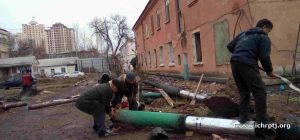
Как компенсируется перевозка «домвещей» и съем временного жилья?
После публикации разъяснений юристов относительно оценки и компенсации при сносе жилых домов и принудительном выселении в наш адрес поступило множество вопросов относительно получения других различных видов компенсаций при сносе многоквартирных домов и некоторых особенностей порядка сноса жилых домов.
Мы условно разделили поступившие вопросы на две части «порядок сноса» и «оценка компенсаций».
Для начала юристы ОО «Независимый центр по защите прав человека» прокомментируют вопросы относительно различных видов компенсаций при сносе жилья и принудительном выселении.
Итак, «оценка компенсаций». Мы выбрали пять самых часто задаваемых вопросов…
http://constuction.tilda.ws/10lifehacksdemolitionampcompensation_part1
УКРЕПИМ ПРАВО НА ДОСТАТОЧНОЕ ЖИЛЬЕ В ЦЕНТРАЛЬНОЙ АЗИИ – СООБЩА!
В странах Центральной Азии право на жилье часто игнорируется со стороны властей, и в принудительном порядке изымается жилье граждан для общественных и государственных нужд, зачастую за мизерную компенсацию. Теперь, о правах граждан при изъятии будет услышано на уровне Центральной Азии. Ряд НКО объединились для решения данного вопроса и начали реализацию проекта “Укрепим право на жилье в Центральной Азии – сообща!”.
По результатам проекта, предполагается, что Правительства трех стран Казахстана, Кыргызстана и Узбекистана будут информированы об актуальности проблемы и предпримут меры по инициированию нормативно правовых актов в своих странах, в целях предупреждения принудительного изъятия. Так, пользу от проекта получат граждане, чьи домовладения в будущем могут попасть в зону сноса и изъятия при реконструкции городов и населенных пунктов.
В Кыргызстане с 2010 – 2018 годы были нарушены права более 5000 граждан в результате практики изъятия. В Казахстане, как и в других странах ЦА, не принимаются законодательные меры по осуществлению права и обеспечению гарантий от принудительного выселения и изъятию земельных участков. В 5 южных регионах Узбекистана с 2008-2018 годы домовладения 9850 граждан были подвержены сносу. Несмотря на меры, предпринятые в законодательстве стран, до настоящего времени ни одно дело, связанное с нарушением неприкосновенности жилища не было возбуждено правоохранителями, и не рассмотрено судебными органами.
Проект реализуется Ошским филиал ОО “Международный Центр Интербилим” (Кыргызстан) совместно с ОФ “Фонд развития парламентаризма в Казахстане” и ОФ ” Институт Демократии и прав человека” (Узбекистан). Эти организации выступают от имени сети ЦА «Право на достаточное жилье», которое состоит из 8-ми активных НКО Казахстана, Кыргызстана, Узбекистана и Таджикистана.
Проект начал свою реализацию в апреле 2019 года и координируется Ошским филиаломОО “МЦ Интербилим” в Кыргызстане при поддержке USAID и Ассоциации Развития Гражданского Общества (АРГО, Казахстан).
Будьте с нами! За дополнительной информацией обращайтесь в офис
ОО “МЦ Интербилим” по следующим контактам:
Phone: +9963222 2-15-34, Е-mail: interbilim.osh@gmail.com
Источник: http://ichrptj.org/ru/blog/укрепим-право-на-достаточное-жилье-в-центральной-азии-–-сообща
Меры, принятые Кыргызстаном, и рекомендации для обеспечения реализации права на достаточное жилище в период пандемии COVID-19
- Общий обзор правовой анализ права:
Право на достаточное жилище является ключевым компонентом права на достаточный жизненный уровень. Данное право предусмотрено статьей 11 Международного Пакта об экономических, социальных и культурных правах, одной из участниц которого является Кыргызская Республика и в связи с чем, несет обязательства по исполнению положений Пакта.
Ко всему прочему, статья 46 Конституции Кыргызской Республики закрепляет право каждого на жилище. Эта же статья предусматривает предоставление малоимущим и иным нуждающимся лица жилища на безвозмездной основе или же за доступную плату.
2. Отступление и ограничение прав человека в период пандемии COVID-19:
В отличие от статьи 4 Международного Пакта о гражданских и политических правах, Международного Пакта об экономических, социальных и культурных правах не предусматривает отступление от прав при чрезвычайном положении, изложенных в Пакте, но допускает определенные ограничения. Так, статья 4 Пакта гласит:
«Участвующие в настоящем Пакте государства признают, что в отношении пользования теми правами, которые то или иное государство обеспечивает в соответствии с настоящим Пактом, это государство может устанавливать только такие ограничения этих прав, которые определяются законом, и только постольку, поскольку это совместимо с природой указанных прав, и исключительно с целью способствовать общему благосостоянию в демократическим обществе». 1Однако, очевидно, что природа права на достаточное жилище такова, что любое его ограничение не будет способствовать благосостоянию в демократическом обществе. Более того, в условиях пандемии любое ограничение данного права создаст угрозу здоровью и благополучию общества, в целом.
С началом распространения пандемии множество стран ввели на своих территориях ограничения определенных прав в целях борьбы с пандемией. Так, 13 стран, в том числе и КР, направили Генеральному Секретарю ООН извещения об отступлении об отдельных прав. Кыргызстан в качестве отступлений указал два права – на свободу передвижения и на свободу мирных собраний. Отступлений от иных прав указано не было. Следовательно, Кыргызская Республика в период пандемии COVID-19 и действия режимов чрезвычайного положения и чрезвычайной ситуации продолжает нести обязательства, взятые на себя в рамках международных договоров.
3. Рекомендации специального докладчика ООН по соблюдению права на достаточное жилище в период пандемии COVID-19 и сопоставление с мерами принятыми Кыргызской Республикой:
https://www.un.org/ru/documents/decl_conv/conventions/pactecon.shtml
8 и 28 апреля 2020 года на то время действующий специальный докладчик по праву на достаточное – г-жа Лейлани Фарха опубликовала ряд директивных записок с рекомендациями государствам по смягчению негативных воздействия пандемии на обязательства и гарантии обеспечения достаточного жилища по всему миру, в частности лицам, которые могут лишиться крова в результате пандемии и бездомным2.
Как отмечает г-жа Лейлани Фарха, право на достаточное жилище играет наиважнейшую роль в период пандемии, поскольку призывы правительств оставаться дома, самоизолироваться невозможно исполнить, если у человека буквально отсутствует крыша над головой или же он быть выселен из жилища.
Далее, в обобщенном виде, будут приведены актуальные для Кыргызстана рекомендации специального докладчика в виде мер, которые должны принять государства с целью гарантии соблюдения права на достаточное жилище.
А) Директивная записка: лица, арендующие жилье и выплачивающие ипотечные взносы:
- Запретить выселения из жилища во время и в течение разумного периода после пандемии в виду неуплаты арендной платы, выплат по ипотечным кредитам и коммунальных платежей. Все процедуры, начавшиеся до вспышки пандемии должны быть приостановлены;
- Принять меры по немедленной «заморозке» и отсрочке арендных выплат, запрещая любое повышение арендной платы в период и в течение значительного времени после пандемии;
- Учредить механизм (орган), который будет осуществлять надзор над исполнением вышеуказанных мер;
- Меры, предусмотренные в данной директивной записке должны распространяться и на неформальный рынок найма жилья.
Б) Директивная записка: бездомность:
- Немедленно предоставить жилище всем бездомным людям, живущим на улице, с тем, чтобы переместить данных лиц в места постоянного проживания, чтобы им не пришлось вернуться на улицы по окончании пандемии;
- Обеспечить, чтобы женщины и дети, которые вынуждены покинуть свои дома в виду насилия, не становились бездомными и были обеспечены альтернативным жильем, включающим в себя все необходимые для жизни условия;
- Экстренное жилище, предоставляемое государством, должно обеспечить все условия для физического дистанцирования, самоизоляции и карантина лиц, в нем проживающих;
- Государство должно воздержаться от любых действий, которые могут привести к тому, что люди могут остаться бездомными в период пандемии.
https://www.ohchr.org/RU/Issues/Housing/Pages/HousingIndex.aspx
В) Директивная записка: запрет на выселения:
– Запретить все мероприятия по выселению в период и в течение разумного периода по окончании пандемии. Единственным исключением может служить тот факт, что выселяемый причиняет вред другим лицам, или же если выселение проводится из соображений безопасности для самого выселяемого;
- Обеспечить лицам, подвергшимся или тем лицам, которым грозит выселение доступ к правосудию и правовым средствам защиты.
Г) Директивная записка: Построить жизнь лучше той, что была прежде:
- Государство при осуществлении финансовых интервенций должно неизменно руководствоваться принципами прав человека и учитывать воздействие данных мер на осуществление прав человека;
- Деятельность частных финансовых учреждений должна подлежать правовому надзору, чтобы данные учреждения не воспользовались сложившийся ситуацией в своих интересах и во избежание негативного воздействия на право на достаточное жилище;
- Разработать и принять политики, направленные на ослабление ипотечного бремени для недопущения выселения в связи с невозможностью оплаты ипотечных взносов;
- Обеспечить, чтобы все меры поддержки и пакеты стимулирования, направленные на сектор недвижимости и строительства, были обусловлены строительством доступного жилья, в том числе для лиц с низким уровнем доходов;
- Проводить на национальном и локальном уровнях консультации между правительством, заинтересованными сторонами, союзами жильцов и арендаторов, строительным компаниями и финансовыми институтами консультации с целью решения жилищных проблем, вызванных пандемией, и разработки стратегией, в основе которых лежит правозащитный подход.
1. Какие из этих мер уже были предприняты государством?
К сожалению, преобладающее большинство из вышеуказанных рекомендаций в сфере достаточности жилища еще не были ни инициированы, ни реализованы Кыргызской Республикой.
Тем не менее, не маловажно и предписание Центрального Банка Кыргызской Республики от 19 марта 2020 г. всем кредитным и финансовым учреждение о отсрочке кредитных платежей.3 По словам Главы НБКР отсрочка направлена исключительно на сектор предпринимательства, то есть, ни о каких отсрочках по оплате ипотечных кредитов речи не идет.4 Несмотря на то, что в данном документе напрямую не упоминается отсрочка платежей по ипотечным кредитам, некоторые институты кредитования, такие как Государственная Ипотечная Компания, произвела отсрочку по ипотечным кредитам5.
https://www.nbkr.kg/newsout.jsp?item=31&lang=RUS&material=97371
http://kabar.kg/news/glava-natcbanka-rasskazal-kogo-kosnetsia-otsrochka-po-oplate-kreditov-v-sviazi-s- koronavirusom/
https://gik.kg/ru/news/full/995.html
Но стоит отметить, что государством еще не охвачены такие слои населения как арендаторы жилья и бездомные. Мониторинг показал, что за время действия ЧП и ЧС на территории Кыргызстана в мэрии/комендатуры городов Ош и Бишкек не раз обращались жители, которые находятся на грани выселения в виду неуплаты арендной платы с вопросом какие меры предпринимаются для решения их проблемы. Во всех случаях, мэрии городов предлагали обратиться жителям в индивидуальном порядке, умалчивая о каких-либо общих мерах поддержки. Помимо этого, в Интербилим-Ош обратились 19 семей с подобной проблемой, в результате данным семьям были предоставлены правовые консультации.
Одной из мер правительства по поддержанию предпринимательства была указана отсрочка коммунальных платежей. Но аналогичная мера для всего населения в целом своего отражения не нашла, что непосредственно ставит под угрозу сам принцип достаточности жилища.
Также, в период действия режим ЧП на реализации прав человека негативно сказывался тот факт, что судебная система буквально не функционировала (кроме следственных судей, осуществлявших свою деятельность в соответствие с графиком дежурств). Это, в свою очередь, идет в разрез вышеуказанной рекомендации специального докладчика о необходимости обеспечения лицам, которым грозит выселение, возможности прибегать к средствам правовой защиты и доступ к правосудию.
Следует отметить, что большинство из предложенных специальным докладчиком мер имеют длительное воздействие на период времени, не ограничивающийся лишь периодом пандемии. Поэтому Кыргызской Республике необходимо в кратчайшие сроки разработать соответствующие меры реализации жилищной политики с учетом вышеуказанных мер и/или пересмотреть уже существующие полититики.
Обзор деятельности Ошского филиала Интербилим по срочному реагированию в реализации прав граждан на достаточное жилище:
- Эдвокаси кампания по снижению процентной ставки за ипотечное кредитование в январе-феврале месяце получил результаты: процентная ставка с 6% снижена на 4%, результат лобби депутатов местного кенеша и департамент ипотечного кредитования г.Ош
- Сделано обращение в мэрию г.Ош об организации шелтора в ОФ «Мусада» для бездомных и выделении питания из пожертвований граждан, поступивших на счет мэрии г. ОШ. Обращение принято к исполнению.
- Сделано Обращение в мэрию показанию продуктовой помощи КЦ «Ак-Журок», где проживают женщины и дети, подверженные домашнему насилию.
- Сделано обращение в мэрию об открытии финансирования проектов социального заказа, согласно программе социального заказа должно быть финансирование кризисного центра и шелтора на 2020ый год. Ответ получен, в местном бюджете нет денег и не известно, когда появится возможность. Однако, запланировано заседание комиссии по социальному заказу с целью срочного обсуждения программы реализации социального заказа, во время которой будут рассмотрены срочность проектных идей и внесение изменений в программу социального заказа по оказанию помощи граждан при Covid-19
- Оказано содействие в сохранении арендного жилья (неформального) 21ой семье в г. ОШ, около 82 человек – среди них 5 семей с ЛОВЗ. Оказана помощь одной семье в Новопавловке Чуй: вышли через ФБ. Последнюю семьи передали в кризисный центр Сезим, они сняли им номер в гостинице.
- Лоббирование членов сети НКО региональный гуманитарный форум в качестве членов комиссии при 7 МТУ г.Ош. Так, в критерии по отбору нуждающихся в гумпомощи включен критерий: проживающий на съемной квартире. Члены комисси также отслеживают, чтобы продуктовая помощь была оказана нуждающимся по месту пребывания, а не по месту прописки (интересы внутренних мигрантов и временно пребывающих в г.Ош.
Рекомендации для гражданского общества КР, занятые в сфере права на достаточное жилище
- Мониторинг основных рекомендаций спец-докладчика:
- исполнение мер, предпринятых Правительством КР по немедленной «заморозке» и отсрочке арендных выплат, запрещающие любое повышение арендной платы в период и в течение значительного времени после пандемии, а также политики, направленные на ослабление ипотечного бремени для недопущения выселения в связи с невозможностью оплаты ипотечных взносов;;
- отследить деятельность исполнительного органа и механизм, который осуществляет надзор вышеуказанных мер;
- собрать информацию по тому, как эти меры, предусмотренные в вышеуказанных мерах распространяется и на неформальный рынок найма жилья.
- предоставление жилища всем бездомным людям, живущим на улице, с тем, чтобы переместить данных лиц в места постоянного проживания, чтобы им не пришлось вернуться на улицы по окончании пандемии;
- положение пожилых, женщин и детей, которые вынуждены покинуть свои дома в виду насилия, не становились бездомными и были обеспечены альтернативным жильем, включающим в себя все необходимые для жизни условия;
- мониторинг временного жилья, предоставляемое государством, на наличие условия для физического дистанцирования, самоизоляции и карантина лиц, в нем проживающих;
- государственных и местных политик, способствующих воздержаться от любых действий, которые могут привести к тому, что люди могут остаться бездомными в период пандемии.
- обеспечение лицам, подвергшимся или тем лицам, которым грозит выселение доступ к правосудию и правовым средствам защиты.
- провести анализ и собрать данные по бездомности при Ковид – 19,
- Сделать рекомендации для органов власти в сфере:
- мер поддержки и пакетов стимулирования, направленные на сектор недвижимости и строительства, были обусловлены строительством доступного жилья, в том числе для лиц с низким уровнем доходов;
- провести на национальном и локальном уровнях консультации между правительством, заинтересованными сторонами, союзами жильцов и арендаторов, строительным компаниями и финансовыми институтами консультации с целью решения жилищных проблем, вызванных пандемией, и разработки стратегией, в основе которых лежит правозащитный подход.
Источник: https://www.interbilimosh.kg/2020/06/15/mery-prinyatye-oshskim-filialom-interbilim-i-rekomendaczii-dlya-obespecheniya-realizaczii-prava-na-dostatochnoe-zhilishhe-v-period-pandemii-covid-19/
Сеть правозащитных организаций обратилась с открытым письмом к Мирзиёеву по поводу сносов
Узбекистан, Ташкент.
Сеть Центральной Азии по праву на достаточное жилище обратилась с открытым письмом к Мирзиёеву по поводу сносов, сообщает корреспондент Podrobno.uz.
Мы приводим без изменений текст письма, копия которого поступила в редакцию.
“Уважаемый Шавкат Мирамонович,
Сеть Центральной Азии по праву на достаточное жилище выражает свое уважение руководству Республики Узбекистан и обеспокоена защитой прав и интересов граждан, подвергнувшихся вынужденному выселению (переселению).
Сеть Центральной Азии по праву на достаточное жилище высоко ценит позитивную практику Узбекистана по защите основных прав и свобод человека и гражданина. В то же время мы обращаем Ваше внимание на необходимость соблюдения конституционных прав граждан на достаточное жилище, а также на защиту от вынужденного выселения.
Недавний случай, произошедший с предпринимателем из Карши, потряс гражданское общество. Доведенный до отчаяния человек облил бензином и поджег замхокима, который хотел снести его магазин.
Сегодня в Республике Узбекистан проводятся масштабные реформы всех секторов экономики, в том числе и сферы строительства и реновации жилого фонда городов и районов страны. Мы приветствуем обновление старых кварталов.
Однако на этом фоне гражданские активисты получают все больше обращений граждан о противоправных действиях ответственных уполномоченных лиц по незаконному сносу домов и уничтожению имущества граждан. Рост числа таких обращений говорит о массовых нарушениях права на достаточное жилище отдельными ответственными лицами и подрывает имидж Узбекистана на международном уровне.
Другой проблемой являются большие суммы компенсационных выплат. Причиной недовольства людей становится также неполная выплата компенсаций за разрушенные дома. Жителям махалли, снесенной для строительства малой промышленной зоны, были выделены земельные участки в поселке Чандиркиёт в Ургенчском районе. Многие из них уже несколько недель вынуждены жить во временных строениях, возведенных из материалов, оставшихся от их домов.
Наряду с этим возникают конфликты между застройщиком и жителями домов, расположенных непосредственно возле стройплощадок. Нарушаются требования градостроительных норм, так как любое строительство должно осуществляться в строгом соответствии с градостроительными нормами (статья 3 Градостроительного кодекса РУ).
О неукоснительном соблюдении требований градостроительных норм говорится и в постановлении президента о программе “Благоустроенная махалля” (пункты 2, 3 УП-5467 от 27.06.2018 г.). В стандартах четко прописано: “Размещение в микрорайонах между жилыми домами объектов любого назначения не допускается. Исключение составляют специальные сооружения (игровые площадки для детей, спортивные площадки, площадки для сушки белья, временные стоянки для автомобилей, п. 21.1. ШНК 2.07.01-03).
В случае если градостроительная деятельность противоречит интересам общества, то она должна быть прекращена (статья 4 Градостроительною кодекса). Юридические и физические лица при осуществлении градостроительной деятельности обязаны соблюдать требования охраны окружающей среды и экологической безопасности, а также санитарных норм и правил (статья 8 Градостроительного кодекса).
В то же время, сносимые работы предположительно проходят в рамках государственной программы “Обод кишлок” (“Благоустроенное село”). Она предусматривает расширение дороги, установку уличных фонарей, создание пешеходных дорожек, автостоянки, новых торговых пунктов.
За изъятую недвижимость гражданам и юридическим лицам полагается возмещение убытков согласно постановлению Кабинета министров РУз. Изъятие земельного участка, либо его части для государственных и общественных нужд производится при согласии землевладельца или по согласованию с землепользователем и арендатором – по решению соответственно хокима района, города, Совета Министров Республики Каракалпакстан, хокимиятов областей и Ташкента либо по решению Кабмина.
Мы нижеподписавшиеся представители Сети ЦА по праву на достаточное жилище, считаем, что в действиях уполномоченных лиц имеется ряд нарушений, противоречащих международным стандартам, в том числе:
– в статье 25 Всеобщей декларации прав человека говорится, “что каждый человек имеет право на такой жизненный уровень, включая пищу, одежду, жилище…”. Нормы статьи 11 Международного пакта о социальных экономических, социальных и культурных правах, гласит, что “государства признают право каждого на достаточный жизненный уровень для него и его семьи, включающий достаточное жилище, и на непрерывное улучшение условий жизни”.
– в Замечании общего порядка № 4 – “Право на достаточное жилище” говорится, что “право человека на достаточное жилище следует рассматривать, как право жить где бы то ни было в безопасности, мире и с достоинством”.
Согласно вышеизложенному, Сеть Центральной Азии по праву на достаточное жилище, просит Вас принять надлежащие меры для обеспечения и осуществления права на достаточное жилище, признавая важное значение в этом отношении международного сотрудничества, основанного на свободном согласии, а также обеспечить верховенство закона, укрепить законность и порядок в целях защиты социальных, экономических, политических и других прав и свобод человека и гражданина, поддержать соблюдение прав и свобод человека, признанных высшей ценностью, всеми структурами и должностными лицами.
Члены Сети ЦА по праву на достаточное жилище обращаются к Вам, господин президент, как гаранту Конституции Узбекистана с просьбой обратить внимание на эти случаи, как и на многие другие нарушения, ведущие к росту напряжения в обществе и незаконной ответной реакции людей.
Мы, члены Сети ЦА по праву на достаточное жилище, объединяющей страны нашего региона в защите прав граждан наших государств на достойное жилище, уверены, что справедливое судебное разбирательство поднимет престиж тех реформ, которые сегодня идут в Узбекистане, в глазах Международной сообществе”.
Отметим, что в Сеть Центральной Азии по праву на достаточное жилище входят ведущие негосударственные некоммерческие организации из стран региона. Это, например, Фонд развития парламентаризма (Казахстан), “Наше право” и “МЦ Интербилим” (Кыргызстан), “Независимый центр по защите прав человека”, “Ассоциация юристов Памира” и “Хукукшиносон” (Таджикистан), “Институт демократии и прав человека” и “Гуманитарный правовой центр” (Узбекистан).
Источник: – АН Podrobno.uz.
